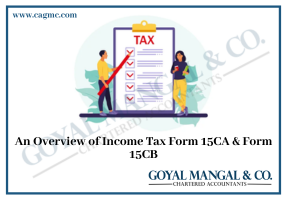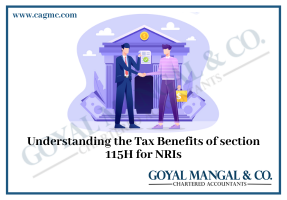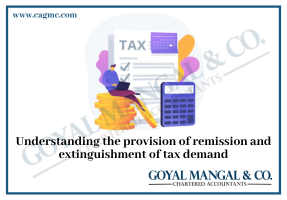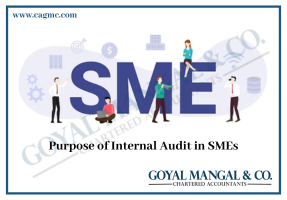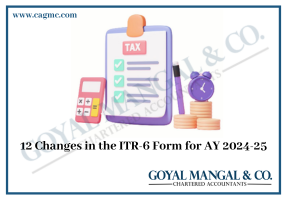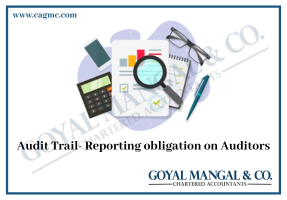
The recent judgment by the Gujarat High Court 2023 Judgement relating to delayed tax refunds has generated substantial interest and discussions as it delves into the complexities of taxes. This ground-breaking ruling not only provides insight into the rights of individuals who pay taxes, but also establishes a model for handling delays in the distribution of refunds. In this blog let’s have a look upon the case ruling.
Table of Contents
- Overview
- Demands for what rightfully belongs. Revealing the Current Situation
- The High Court provides its opinion: A victory for the rights of taxpayers.
- Broader Implications and Insights
- Towards a More Just and Efficient Tax System
- Potential next steps & future implications
- Final words
Overview
On December 21, 2023, the Gujarat High Court 2023 Judgement has made a crucial decision in a case that has wide-ranging implications. The court ruled in favour of a group of farmers who had their request for interest on delayed tax refunds rejected by the Income Tax Department (ITD) at first. This typical conflict goes beyond a personal complaint, shedding light on matters related to fair processes, the rights of taxpayers, and the complexities of tax administration in India.
Demands for what rightfully belongs. Revealing the Current Situation
The petitioners were not informed or given the mandatory Form-16A when the Irrigation Department, acting as the deductor, tax deducted at source (TDS) on the interest portion while depositing the compensation. The petitioners were not aware of this deduction, causing them to overlook the deadline for submitting their income tax returns and requesting a refund.
Their pursuit of justice began after they discovered that their TDS deduction was made without proper authorization. They requested the Income Tax Department to forgive the delay and submitted their refund requests. Although the Department approved the refunds, it refused to provide interest due to the late submission. This harmless administrative choice sparked a legal conflict that had far-reaching implications for Indian taxation laws.
The High Court provides its opinion: A victory for the rights of taxpayers.
The Gujarat High Court 2023 Judgement found the arguments put forward by the petitioners compelling. The Court delivered a harsh criticism in its ruling, stating that:
- The petitioners were not responsible for the delay: The Oversight made by the Irrigation Department in failing to notify them about the deduction of TDS and their failure to provide them with Form-16A was a significant mistake. Individuals who pay taxes cannot face punishment for mistakes or lack of information that is caused by the government or other official entities.
- The responsibility of paying interest on the refund claims rested with the ITD: TDS is not applicable to the interest earned on compensation for agricultural land acquisition as stated in Section 194LA of the Income Tax Act, 1961. The incorrect utilization of this exemption resulted in the mistaken deduction and consequently postponed the receipt of refunds.
- The Court centred its decision: The Central Board of Direct Taxes (CBDT) issued a document in July 2013. According to this directive, a taxpayer cannot be denied interest as stipulated in section 244A of the Income Tax Act if they were not responsible for the delay in filing a refund claim.
Broader Implications and Insights
- The Gujarat High Court 2023 Judgement decision goes beyond the limits of just one case. It acts as a source of optimism for taxpayers all over India, providing numerous vital observations.
- Ensuring the interests of the taxpayer.
- This decision emphasizes the idea that taxpayers have a basic entitlement to prompt and precise information from the tax authorities. Legitimate claims should not be denied based on the department’s omissions or procedural mistakes.
- Changing the responsibility of providing evidence or proving something.
- It is now the responsibility of the Income Tax Department (ITD) to show that the taxpayer is to blame for the delay in filing a refund claim. This notable change in accountability grants taxpayers more power and motivates the department to uphold effective administrative methods.
- The focus is on correctly implementing exemptions.
- The judgment emphasizes the significance of abiding by the complexities of the tax regulations. Unnecessary complications and delays can arise from misinterpreting or misapplying exemptions, which is evident in this situation.
- The decision made by the Gujarat High Court 2023 Judgement goes beyond the limits of a particular legal case. It provides a glimmer of hope for taxpayers throughout India, delivering numerous significant revelations. The concept of responsibility and obligation in the tax administration:
- The ruling of the Court emphasizes the importance of holding the ITD responsible. Taxpayers should not be put at a disadvantage by errors and inefficiencies. This emphasizes the significance of internal procedures and adherence to regulations.
- Giving taxpayers the ability to assert their rights.
- This significant judgment establishes an important standard for taxpayers who encounter comparable circumstances.
- It motivates individuals to pursue delayed claims and assert their rightful interest, especially when the delays are caused by the department or are beyond their influence.
Towards a More Just and Efficient Tax System
The judgment from the Gujarat High Court 2023 Judgement is a notable milestone in the direction of achieving a fairer and more streamlined tax framework in India. This emphasizes the significance of the rights of taxpayers, procedural justice, and precise execution of the tax regulations.
Although there may be complexities and particular details to work through in the future, it is essential to recognize the significant impact of this decision. It acts as a guiding light, illuminating a way forward where issues with process don’t overshadow the rights of taxpayers. Undoubtedly, the impact of this decision will resonate throughout courtrooms and tax offices, leading to self-reflection and a renewed dedication to open and responsible practices.
Potential next steps & future implications
- Effect on taxpayer conduct: This situation has the potential to prompt an increase in taxpayers’ understanding about their entitlement to interest on refunds that are not promptly issued and exemptions such as Section 194LA of Income Tax Act, 1961. This newly acquired information could enable them to actively pursue their rightful entitlements and question any inconsistencies.
- Alterations in the way departments handle their tasks. The ITD could examine its internal methods and communication procedures to reduce mistakes and oversights, which includes ensuring the prompt issuance of Form-16A and accurate implementation of exemptions. This has the potential to reduce the frequency of taxpayers encountering similar circumstances.
- Changes to existing laws or regulations: The decision may initiate conversations within the legal system about changes to the Income Tax Act or CBDT guidelines to provide better clarification and resolution for ambiguous situations like this. This may lead to a tax system that is more efficient and advantageous to taxpayers.
The Gujarat High Court’s decision goes beyond the specific situation it is based on, reaching a broader significance. It serves as proof of the steadfast commitment to ensuring equality and safeguarding the rights of taxpayers. It acts as a prompt to remember that despite the intricacies of the tax system, following proper procedures and ensuring fairness is of utmost importance.
Final words
Among a frequently complicated legal environment, the ruling of the Gujarat High Court 2023 Judgement shines brightly, highlighting the significance of prompt and equitable procedures for tax refunds. As the complexities of taxation are examined by taxpayers and government officials, this decision is deemed a notable progress towards establishing a fairer and more effective system for managing taxes.

